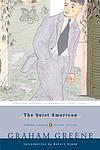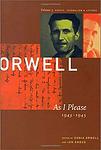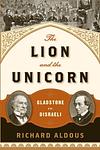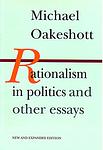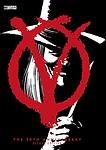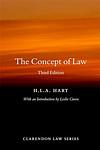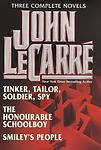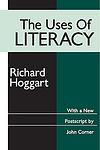The Greatest British "Political" Books Since 1950
Click to learn how this list is calculated.
This list represents a comprehensive and trusted collection of the greatest books. Developed through a specialized algorithm, it brings together 300 'best of' book lists to form a definitive guide to the world's most acclaimed books. For those interested in how these books are chosen, additional details can be found on the rankings page.
Genres
The "Political" category of books encompasses works that explore the theory, practice, and history of government and politics. These books may cover topics such as political ideologies, political systems, political institutions, political movements, and political leaders. They may also examine the relationship between politics and other areas of society, such as economics, culture, and international relations. Political books can be both informative and thought-provoking, offering readers insights into the complexities of the political world and the challenges of governing in a democratic society.
Countries
Date Range
Reading Statistics
Click the button below to see how many of these books you've read!
Download
If you're interested in downloading this list as a CSV file for use in a spreadsheet application, you can easily do so by clicking the button below. Please note that to ensure a manageable file size and faster download, the CSV will include details for only the first 500 books.
Download-
1. Lord of the Flies by William Golding
A group of British boys are stranded on an uninhabited island after their plane crashes during wartime. Initially, they attempt to establish order, creating rules and electing a leader. However, as time passes, their civility erodes, and they descend into savagery and chaos. The struggle for power intensifies, leading to violence and death. The novel explores themes of innocence, the inherent evil in mankind, and the thin veneer of civilization.
-
2. The Golden Notebook by Doris Lessing
The novel centers around a woman named Anna Wulf, a writer who keeps four notebooks, each representing a different aspect of her life: her experiences in Africa, her current life in London, a novel she is writing, and her personal experiences. As Anna's mental state deteriorates, she attempts to unify her fragmented self in a fifth notebook, the golden notebook. The novel explores themes of mental breakdown, communism, the changing role of women, and the fear of nuclear war.
-
3. The Spy Who Came in From the Cold by John le Carré
This novel is a fascinating tale of espionage during the Cold War, centered around a British intelligence officer who is seemingly ready to end his spy career. However, he is given one last mission before his retirement: to bring down the head of East German Intelligence. As he navigates the dangerous world of spies and double agents, he is forced to confront his own past and the sacrifices he has made for his country. The story is a complex exploration of morality, loyalty, and the personal cost of political conflict.
-
4. White Teeth by Zadie Smith
This novel follows the lives of two friends, a working-class Englishman and a Bangladeshi Muslim, living in London. The story explores the complex relationships between people of different races, cultures, and generations in modern Britain, with themes of identity, immigration, and the cultural and social changes that have shaped the country. The narrative is enriched by the characters' personal histories and the historical events that have shaped their lives.
-
5. The Day of the Jackal by Frederick Forsyth
"The Day of the Jackal" is a suspenseful thriller that revolves around an unnamed and highly skilled professional assassin who is hired by a French dissident paramilitary organization to kill Charles de Gaulle, the President of France. The novel intricately details the meticulous preparations of the assassin, his many disguises, and his method of operation, while also depicting the desperate efforts of the French police to uncover his identity and prevent the assassination, leading to a tense cat-and-mouse chase across Europe.
-
6. The Making of the English Working Class by E. P. Thompson
This book is a comprehensive historical analysis of the formation of the English working class from the late 18th century to the mid-19th century. The author meticulously examines various aspects of society including the Industrial Revolution, the rise of Methodism, and political movements, arguing that the working class was not a byproduct of economic factors alone, but was actively self-formed through struggles over issues like workers' rights and political representation. The book is widely regarded as a seminal text in social history due to its focus on the experiences and agency of ordinary people.
-
7. The Quiet American by Graham Greene
Set during the French colonial war in Vietnam, this novel follows a British journalist and a young American idealist who become friends and find themselves in a love triangle with a Vietnamese woman. As the war escalates, the journalist becomes disillusioned with the American's naïve political views and the destructive impact of foreign intervention. The story is a critique of American involvement in Vietnam, exploring themes of love, friendship, and moral ambiguity.
-
8. Collected Essays of George Orwell by George Orwell
This book is a compilation of essays by a renowned author, known for his sharp wit and critical eye. It covers a wide range of topics, from politics and language to literature and culture. The author's insightful and often provocative viewpoints provide a unique perspective on the world, challenging readers to question their own beliefs and assumptions. His straightforward writing style and keen observations make these essays as relevant today as when they were first published.
-
9. The Children of Men by P. D. James
Set in a dystopian future where mankind has become infertile, the novel centers on a history professor who becomes involved with a group of revolutionaries seeking to overthrow the oppressive government. As the world descends into chaos due to the impending extinction of the human race, a miraculous pregnancy offers a glimmer of hope. The professor must protect the pregnant woman and navigate the dangerous political landscape, while grappling with the implications of a world without children.
-
10. The Line of Beauty by Alan Hollinghurst
Set in the 1980s during the era of Margaret Thatcher's conservative government in Britain, this novel follows the life of a young gay man named Nick Guest. Coming from a middle-class background, he moves into the home of his wealthy friend's family and becomes infatuated with the opulence and power of the upper class. As he navigates his way through this new world, he also explores his sexuality, all while dealing with the societal and political implications of the AIDS crisis.
-
11. Our Man In Havana by Graham Greene
The book is a satirical espionage novel set in pre-revolutionary Cuba, where a hapless vacuum cleaner salesman is recruited by British intelligence to serve as their operative in Havana. Despite his lack of experience and qualifications, he fabricates intelligence reports to appease his superiors, inadvertently triggering a cascade of increasingly absurd and dangerous events. As the line between fiction and reality blurs, the protagonist finds himself entangled in a web of deception and political intrigue that satirizes the absurdities of the Cold War era and the follies of intelligence agencies.
-
12. What a Carve Up! by Jonathan Coe
This satirical novel follows the story of the Winshaw family, a wealthy and corrupt British family who have a significant influence on British society in fields such as politics, business, media, and the arts. The narrative is presented through the eyes of a commissioned biographer who is trying to make sense of the family's history and their impact on society. As he delves deeper into the family's affairs, he uncovers dark secrets and becomes entangled in a complex web of deceit and murder.
-
13. Small Is Beautiful: Economics as if People Mattered by E. F. Schumacher
This book is a collection of essays that challenge the established economic paradigm, arguing for a shift towards smaller, more sustainable systems. The author criticizes conventional capitalism for its focus on profit and growth, suggesting instead that economies should prioritize human well-being and environmental health. He presents a vision of "Buddhist economics," where work is viewed as a means to personal development and fulfillment, not just income generation. The book also offers practical solutions for implementing this new economic model, such as decentralization, appropriate technologies, and renewable energy.
-
14. Disraeli by Robert Blake
This biography provides a comprehensive look at the life and political career of Benjamin Disraeli, one of the most influential figures in 19th-century British politics. The book explores his rise from a debt-ridden novelist to the prime minister of the United Kingdom, highlighting his charismatic personality, sharp intellect, and political acumen. It also delves into his unique approach to politics, his relationships with Queen Victoria and other influential figures, and his enduring impact on British conservatism.
-
15. On Beauty by Zadie Smith
This novel is a contemporary, multicultural exploration of family life, love, and identity. It follows the lives of two mixed-race families, the Belseys and the Kipps, who are linked by their shared professions in academia and a complex web of marital and extramarital relationships. The story is set against the backdrop of Wellington, a fictional New England town, and explores themes of race, class, and cultural clash. It also delves into the world of academia, examining the politics and conflicts that arise in that environment.
-
16. Rationalism in Politics by Michael Oakeshott
"Rationalism in Politics" is a collection of essays that critique the role of rationalism in politics, arguing that political decisions should be based on tradition and experience rather than abstract theories. The author asserts that rationalism, with its emphasis on premeditated, systematic approaches, often fails to acknowledge the complexity and unpredictability of human behavior and social dynamics. He emphasizes the importance of practical knowledge, acquired through experience, in political decision-making and criticizes the rationalist's disregard for such wisdom.
-
17. Modern Times by Paul Johnson
"Modern Times" is an in-depth historical analysis of the 20th century, covering major events, movements, and figures that have shaped the modern world. The author critically examines the impacts of World War I and II, the Cold War, the rise of totalitarian regimes, and the influence of religion and ideology on politics and society. The book also explores significant scientific and technological advancements, and their effects on human perception and behavior. It provides a comprehensive understanding of the complexities and contradictions of the 20th century, and how they continue to influence the 21st century.
-
18. V for Vendetta by Alan Moore
"V for Vendetta" is a dystopian graphic novel set in a future totalitarian England. The story follows a mysterious, anarchistic vigilante known only as "V" who wears a Guy Fawkes mask and seeks to overthrow the oppressive government. The novel explores themes of freedom, oppression, and the power of ideas, as well as the moral complexities of vengeance and violence. It also delves into the personal journey of a young woman named Evey, who becomes V's unlikely ally.
-
19. The Concept Of Law by H. L. A. Hart
This seminal work in legal philosophy offers a comprehensive analysis of the nature of law, articulating a sophisticated theory that emphasizes law as a system of social rules. It challenges earlier positivist and command theories of law, introducing the idea of the "rule of recognition" as a fundamental aspect by which a society accepts certain norms as legally binding. The book also explores the relationship between law and morality, the variety of legal systems, and the notion of legal rights, ultimately providing a framework for understanding the complex structure and functioning of legal institutions in modern societies.
-
20. The Hedgehog and the Fox by Isaiah Berlin
"The Hedgehog and the Fox" is an essay that presents a philosophical and intellectual dichotomy based on a line from an ancient Greek poet, "The fox knows many things, but the hedgehog knows one big thing." The author uses this concept to categorize thinkers and writers into two groups: hedgehogs, who view the world through the lens of a single defining idea, and foxes, who draw on a wide variety of experiences and for whom the world cannot be boiled down to a single idea. The author uses this framework to analyze the works of various historical figures and philosophers.
-
21. Shame by Salman Rushdie
"Shame" is a novel that explores the political and social climate of post-colonial Pakistan through the intertwined lives of three families. The story is a blend of magical realism and historical fiction, focusing on themes of shame, identity, and power. The narrative is laced with satire and explores the consequences of living in a society where honor is prized above all else. The story unfolds in a non-linear fashion, giving readers a deep insight into the complex socio-political dynamics of a nation in transition.
-
22. Smiley's People by John le Carré
In this espionage thriller, a retired British intelligence officer, known for his bespectacled and unassuming demeanor, is called back into action when one of his former assets, a Soviet general, is found murdered. The investigation leads him across Europe, rekindling old rivalries and uncovering a complex web of betrayal and deception. As he delves deeper into the case, he must confront his own past and a formidable Soviet spymaster, ultimately leading to a high-stakes game of intelligence and counterintelligence, where the stakes are not just personal, but have far-reaching implications for the security of the West.
-
23. Stand on Zanzibar by John Brunner
The novel is a dystopian vision of the year 2010, where the world grapples with overpopulation, ecological disasters, and widespread social unrest. It follows a multitude of characters, including a high-level executive and a data analyst, as they navigate a society dominated by multinational corporations and a supercomputer that predicts social trends. The narrative is fragmented, employing a unique style that interweaves different types of texts to reflect the chaotic and information-saturated world it depicts. Themes of eugenics, media saturation, and corporate power are explored in a world that is at once technologically advanced and socially fragmented.
-
24. The Uses of Literacy by Richard Hoggart
"The Uses of Literacy" is a sociological study that explores the impact of mass media and popular culture on traditional working-class values and communities in Britain during the mid-20th century. The author combines personal memoir with scholarly analysis to examine how the spread of American consumer culture and the rise of mass media have influenced British society, especially among the working class. The book serves as a critique of the commercialization of culture and the erosion of authentic, local cultures and traditions.
-
25. The Honorary Consul by Graham Greene
Set in a remote city on the Parana River in Argentina, the novel follows the story of a British honorary consul who is mistakenly kidnapped by revolutionaries who intended to kidnap the American ambassador. As the consul battles alcoholism and depression, his young wife embarks on an affair with a local doctor, who is drawn into the political drama as he attempts to negotiate the consul's release. The book explores themes of love, political unrest, and moral ambiguity.
Reading Statistics
Click the button below to see how many of these books you've read!
Download
If you're interested in downloading this list as a CSV file for use in a spreadsheet application, you can easily do so by clicking the button below. Please note that to ensure a manageable file size and faster download, the CSV will include details for only the first 500 books.
Download





